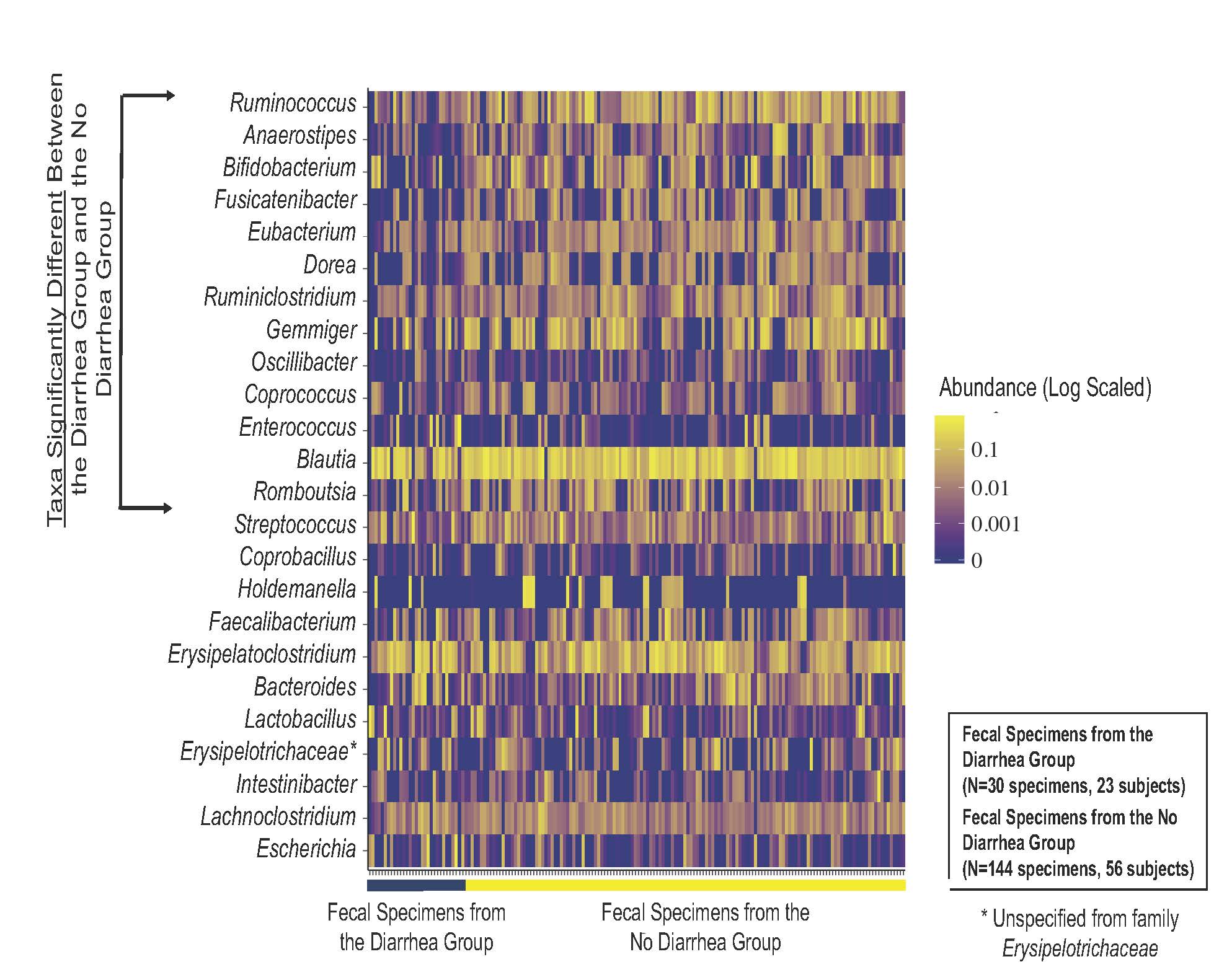Gut Dysbiosis Predominates Post-Transplant Diarrhea in Kidney Transplant Recipients: A Validation Study
Weill Cornell Medicine, New York, NY
Meeting: 2019 American Transplant Congress
Abstract number: 364
Keywords: Kidney transplantation
Session Information
Session Name: Concurrent Session: Biomarkers, Immune Monitoring and Outcomes III
Session Type: Concurrent Session
Date: Monday, June 3, 2019
Session Time: 4:30pm-6:00pm
 Presentation Time: 5:42pm-5:54pm
Presentation Time: 5:42pm-5:54pm
Location: Room 306
*Purpose: Lower abundance of commensal bacterial taxa in the gut has been previously described in a recent study of kidney transplant recipients with post-transplant diarrhea (Am J Transplant doi: 10.1111/ajt.14974). In this study, we set out to validate the gut microbial signature associated with post-transplant diarrhea in a different cohort of kidney transplant recipients.
*Methods: We obtained 174 fecal specimens from 79 kidney transplant recipients in the first 3 months of transplantation and performed microbiome profiling using 16S rRNA deep sequencing of the V4-V5 hypervariable region (Illumina MiSeq, 250 base pair by 250 base pair). 23 kidney transplant recipients developed post-transplant diarrhea and provided 30 diarrhea-associated fecal specimens (Diarrhea Group) and 56 kidney transplant recipients did not develop post-transplant diarrhea and provided 144 fecal specimens (No Diarrhea Group). We evaluated whether the abundances of the same genera previously reported in the recent Am J Transplant publication were also significantly different between the Diarrhea Group and the No Diarrhea Group.
*Results: Fecal specimens in the Diarrhea Group had significantly lower microbial diversity as measured by the Shannon diversity index than fecal specimens in the No Diarrhea Group (median 2.2 vs. 2.8, respectively, P=0.0001, Wilcoxon rank sum test). At the genus level, there were 13 genera whose abundances were significantly different between the fecal specimens in the Diarrhea Group and the fecal specimens in the No Diarrhea Group (Wilcoxon rank sum test, q value < 0.15, Benjamini-Hochberg correction). A heatmap of the gut abundances of the genera is shown with the 13 significantly different genera at the top of the heatmap. Twelve of the 13 genera were previously reported as significantly different in the recent Am J Transplant publication: Ruminococcus, Anaerostipes, Bifidobacterium, Fusicatenibacter, Eubacterium, Dorea, Ruminiclostridium, Oscillibacter, Coprococcus, Enterococcus, Blautia, and Romboutsia.
*Conclusions: The current study confirms a lower abundance of commensal bacterial taxa in the post-transplant diarrhea state, as previously reported, which further supports future studies using modulation of the gut microbiome to prevent and/or treat post-transplant diarrhea.
To cite this abstract in AMA style:
Zhang L, Lee J, Magruder M, Edusei E, Dadhania D, Lubetzky M, Albakry S, Botticelli B, Pamer E, Suthanthiran M. Gut Dysbiosis Predominates Post-Transplant Diarrhea in Kidney Transplant Recipients: A Validation Study [abstract]. Am J Transplant. 2019; 19 (suppl 3). https://atcmeetingabstracts.com/abstract/gut-dysbiosis-predominates-post-transplant-diarrhea-in-kidney-transplant-recipients-a-validation-study/. Accessed March 3, 2026.« Back to 2019 American Transplant Congress

